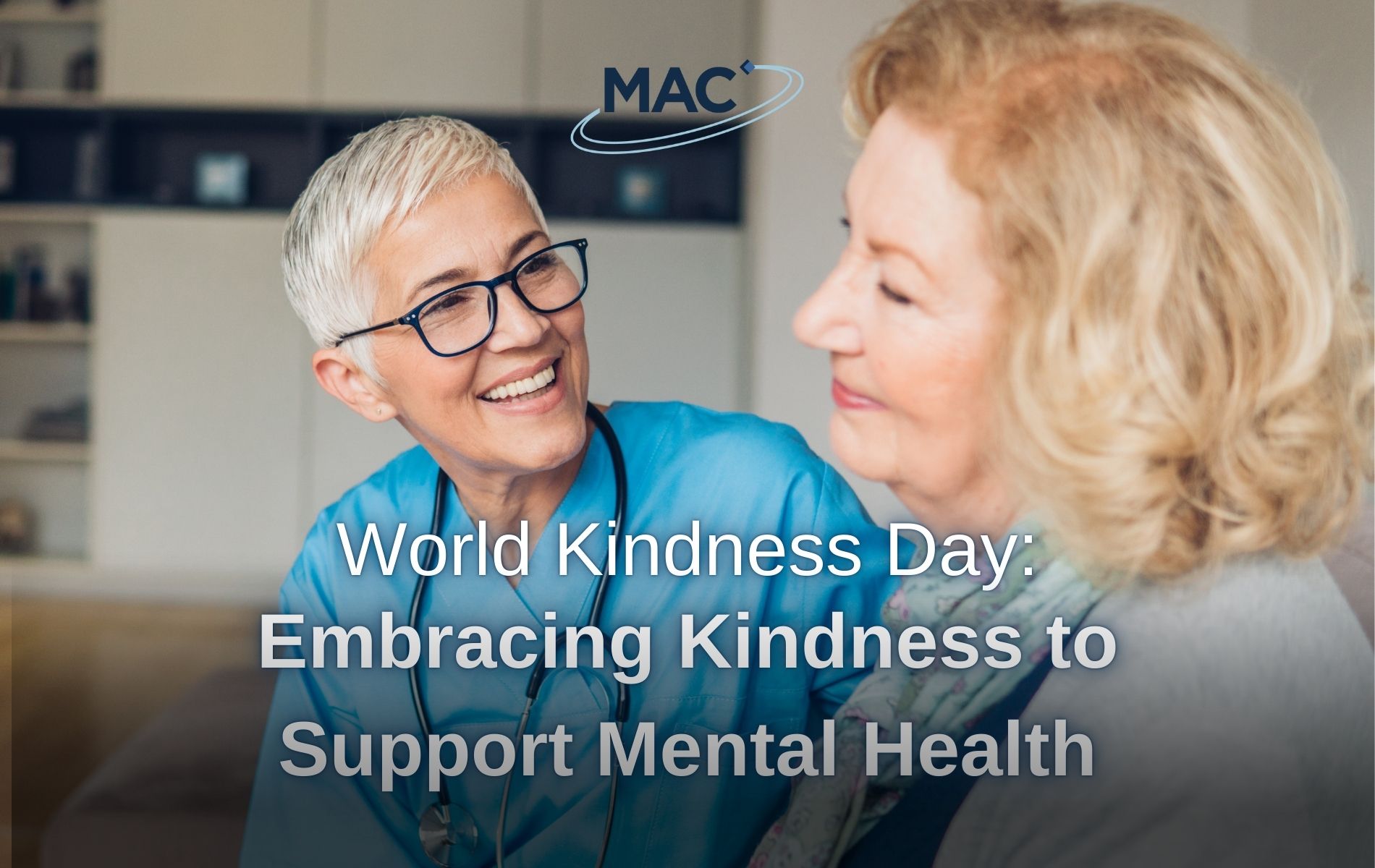To recognise this year’s World Kindness Day, observed on 13th November, we are delving into the science behind kindness and how it supports mental health. This initiative is a perfect reminder of how acts of kindness can make a big impact on our mental health. Kindness isn’t just a feel-good act—it can have real psychological benefits. Research shows that both giving and receiving kindness can reduce stress, lift mood, and increase feelings of connection. At MAC Clinical Research, our clinical trials foster an environment of empathy, reflecting the power of kindness as part of healing and support.
The Neuroscience of Kindness
Did you know that kindness is shown to improve mental well-being? Studies demonstrate that acts of kindness stimulate the brain’s release of oxytocin, also known as the “love hormone.” This response reduces cortisol levels (associated with stress), leading to a greater sense of calm and happiness[i]. UK-based studies, like those from King’s College London, suggest that when we participate in acts of kindness, it also positively impacts those witnessing it, reducing symptoms of social anxiety and loneliness across communities[ii]. As social isolation and mental health concerns have increased over the last decade, these findings highlight kindness as a natural antidote to loneliness and stress. Dr David Hamilton, a British researcher who studies kindness and its effects on health, reports that prosocial behaviours—like volunteering or participating in research that helps others—have been shown to improve self-esteem and emotional resilience[iii]. This means that taking part in something that helps others—like a clinical trial—is a kind act with real potential benefits for everyone involved, including you!
Jorge Costa, Head of Neuroscience at MAC Clinical Research, shares, “Kindness isn’t just a social glue; it has measurable effects on brain chemistry. In our trials, we see how kindness influences the participants’ sense of well-being, particularly for conditions such as anxiety and depression.”
The Role of Kindness in Clinical Research
At MAC, kindness and understanding are foundational to our work. Participating in clinical trials can stir up feelings of uncertainty, but we are committed to creating an environment where our participants feel valued, supported, and understood. Participants often report that the atmosphere of empathy and compassion at MAC positively enhances their experience on a trial. This resonates with research from the Mental Health Foundation, which highlights how a caring community helps individuals facing anxiety and depression[iv], and aligns with a growing body of research demonstrating that social support and a sense of purpose contribute positively to mental health recovery[v].
Our approach allows patients not only to contribute to life-changing research but to experience kindness themselves. Dr John Connell, Chief Scientific Officer at MAC notes, “Our team actively fosters a culture of empathy and respect, ensuring that each participant is treated not just as a contributor to science, but as a partner in a shared mission to advance mental health treatments.”
Giving Back: A Powerful Act of Kindness
Engaging in clinical trials is more than a personal choice; it’s an act of kindness toward the larger community; your involvement could make life easier for someone else down the line. You’re contributing to a better understanding of conditions like depression, social anxiety, and generalised anxiety disorder (GAD), and helping find new or improved ways to treat them. Studies, such as those by the University of Sussex, have found that altruistic behaviours like volunteering or participating in research can improve mood and provide a sense of purpose[vi]. For people living with anxiety, social phobia, or depression, knowing their involvement may help others can be provide a sense of fulfilment.
MAC Clinical Research offers a caring, and emotionally safe space where participants across the UK—whether from Manchester, Yorkshire, South Staffordshire or beyond—to make a difference. Our clinical trials are designed to provide participants with a professional and understanding environment that not only advances science but fosters a culture of kindness.
How You Can Contribute
If you’re considering joining a clinical trial, World Kindness Day is a meaningful time to get involved. By participating in MAC’s research, you can experience the emotional boost that comes from knowing you’re contributing to a kinder, healthier world. Every person who joins our clinical research community brings us closer to effective, accessible, and compassionate health care. To find out more about MAC Clinical Research’s work and register your interest to take part in advancing treatment options, visit our Current Studies webpage to find a trial to suit you. Together, we can improve health!
[i] Oxytocin, the kindness hormone, Sarah Merron
[ii] The Neuroscience of Kindness, University of Sussex
[iii] The Health Benefits of Kindness, Dr David Hamilton, PhD




